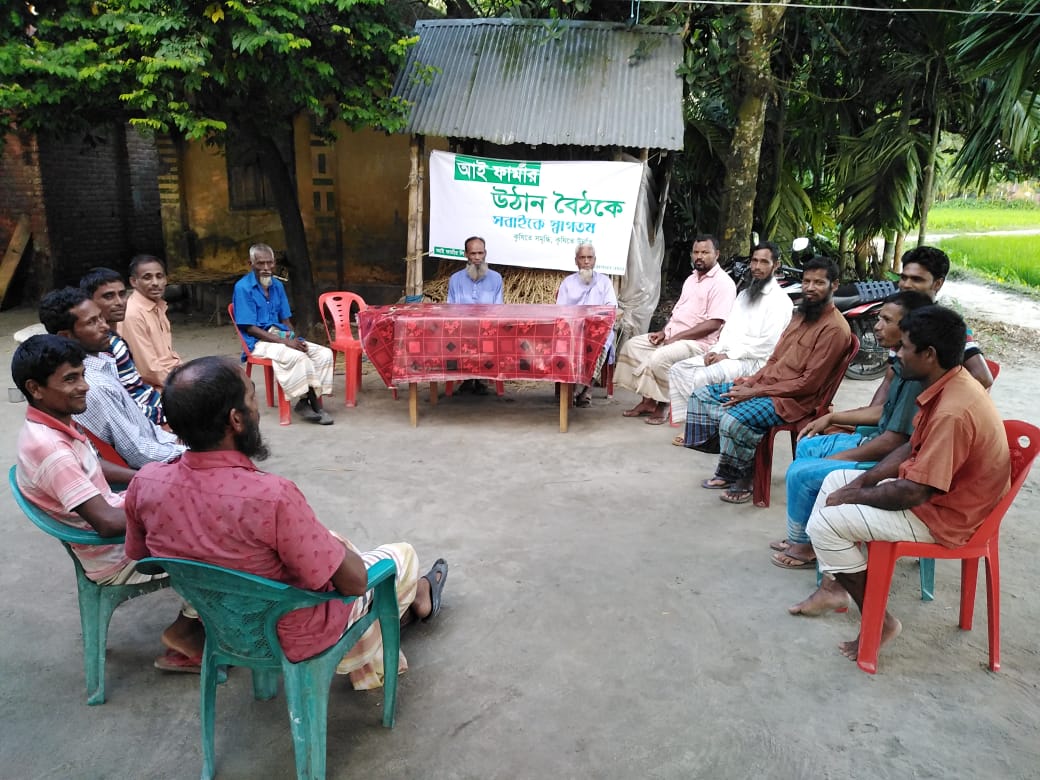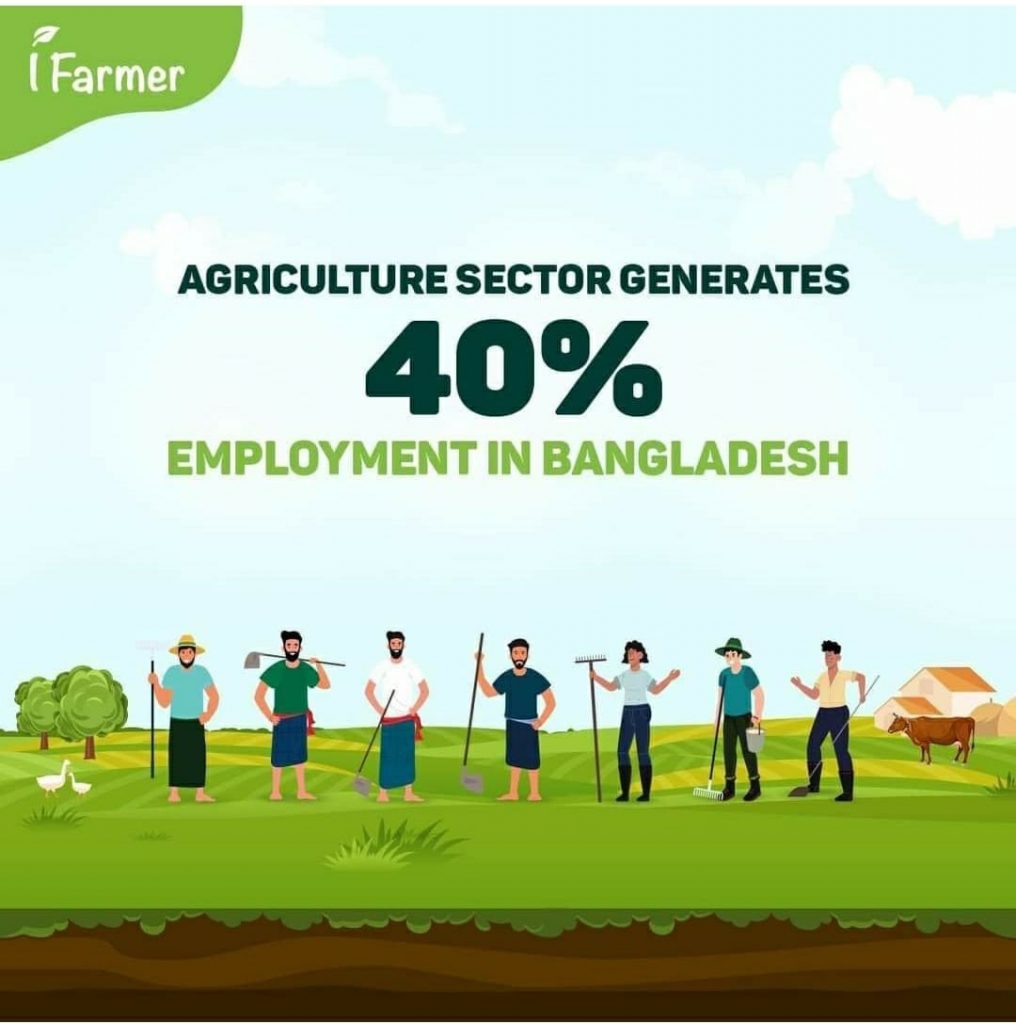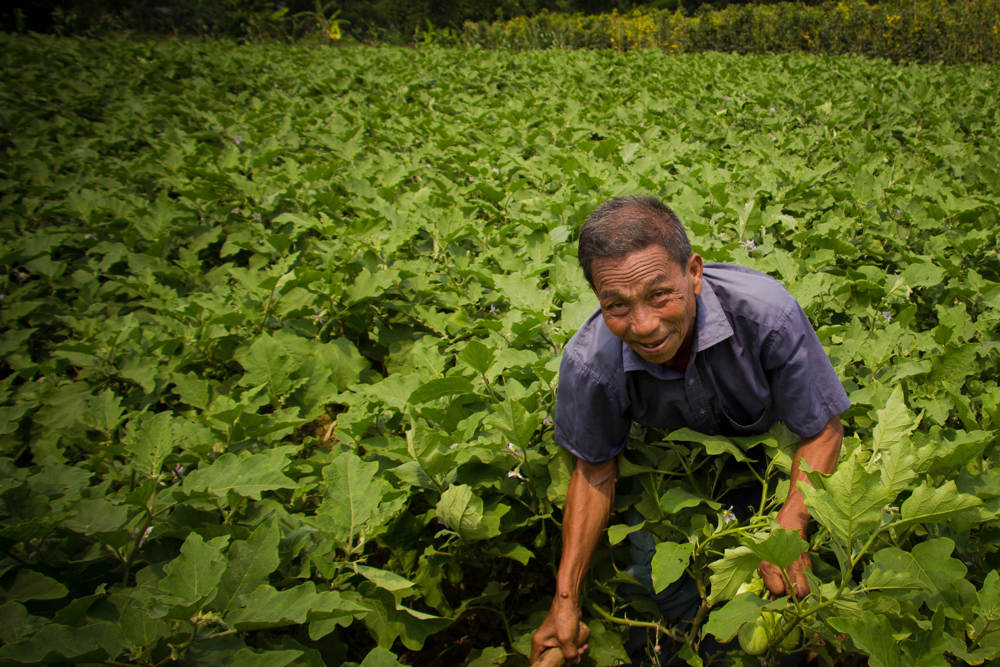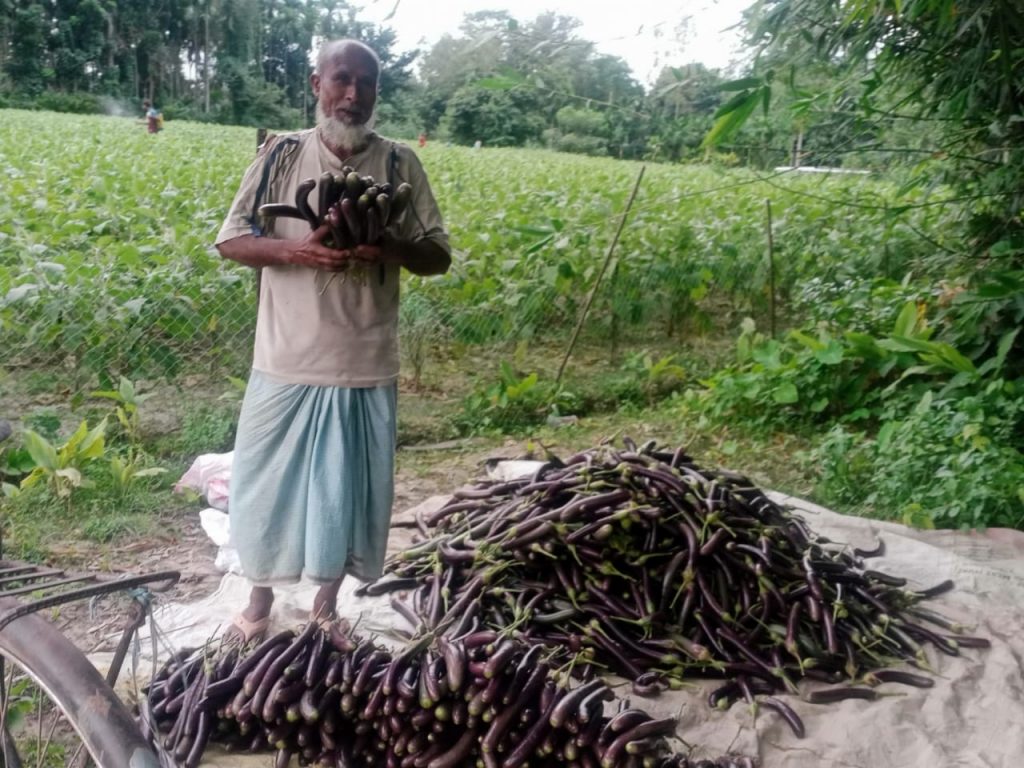
iFarmer was born from a simple but powerful idea: Democratizing agriculture financing and supply chain. All over Bangladesh, farmers routinely struggle to access finance, market, quality inputs, and information. As a consequence, farmers, while doing the most important work for the nation, don’t get the right price for their produce, live in poverty, limitation, and neglect. There have been initiatives to empower farmers but often long-term priorities get looked over for the narrow short-term achievements.
iFarmer, to that end, has taken a different approach. The company has opened investment in agriculture to regular retail investors it fondly calls urban farmers, who could not become farmers themselves but would love to invest in farming. iFarmer focused on giving farmers agency and choice through access to finance in the form of investment and control over the price of their produce through access to the market.
“In everything we do, we put the farmers at the center of our work,” the company writes on its website. “Our aim is to increase farmers' income and improve their livelihood by providing bundled services of finance, access to inputs, timely advisory and access to the right markets through our platform.”
In Bangladesh agriculture provides 40% of employment and provides food security and nutrition for 170 million people. However, agriculture and farming as a sector are in decline. Farming and rural lifestyle is often romanticized but in reality, it is a thankless, risky, and even back-breaking job, especially as undertaken by the disadvantaged and vulnerable smallholder farmers.
Information asymmetry is a critical reason for the farmers not to be able to get the maximum return from their fields. Amongst other things, farmers often do not know what are the right inputs for their farm, lack of information about the price, availability, and even usage of these inputs.
iFarmer has partnered with input sellers and companies to deliver high quality inputs to the farmers on credit. Alongside, iFarmer provides advisory services and training to the farmers to enhance their knowledge on proper usage of these inputs, financial management and best practices of farming. From there, the company has gradually moved up to build a supply chain business to connect farmers with the market.
iFarmer’s work is already bearing fruits. Farmers can access funds easily and the payment terms are flexible. Farmers who work with iFarmer can access high-quality inputs at almost 10% less cost than the regular retail price which has resulted in increased product quality and yields. Female farmers who mostly refrain from going to the market themselves, can easily purchase high quality inputs through iFarmer’s collaboration with retailers. Finally, access to markets allows farmers to get the right price for their products and make more profits.
“We offer farmers access to finance which is the core of our business, where we work with retail investors and financial institutions to provide the necessary capital for farming through us. We are now intervening with inputs where we are working with input companies,” says iFarmer co-founder and CEO Fahad Ifaz in an interview with FS. “Our supply chain business is a natural development of our mission to empower farmers and critical for our work with both farmers and other stakeholders Often farmers don’t get the right price when they rely on traditional middle-men reliant supply chains for selling their products.”

Md. Ismail Hossain, a potato farmer based in Kurigram, has been in agriculture since his early years. He is one of the several thousand farmers iFarmer works with in the region. Mr. Hossain says financing has always been a challenge. Difficulty in accessing finance makes it hard to grow. “The available options for financing are limited and often come with high-interest rates and other limitations,” says Mr. Hossain.
This is not a challenge unique to Mr. Hossain. Being a farmer is not easy in Bangladesh or anywhere in the world these days. Almost 70% of farmers typically don't have access to formal financing in Bangladesh. Financial institutions such as Banks and NBFIs deem farmers ineligible for loans. Consequently, farmers rely on microfinance institutions, traders, loan sharks, and friends and family for finance. These loans come at prohibitively high-interest rates as high as 30-70% according to some estimates.
Finance, however, is not the only malady farmers suffer from. Good quality agriculture inputs are expensive and low quality and counterfeit products are equally accessible everywhere. So, many farmers go for low-quality options that offer credit and low prices. As a result, productivity declines and quality suffers. If you look at the yield per hectare or per cow in Bangladesh, it is quite low in comparison to the world average or even the average in South Asia. Low-quality inputs are partially to blame.
Then comes access to the market. The middlemen reliant supply chain increases the price for businesses and consumers but farmers hardly get more than 30% of that price. An Asian Development Bank (ADB) report suggests, farmers in Bangladesh get only 27% of the selling price of red amaranth, 44% of that of pineapple, 45% of that of tomatoes, and 46% of that of cucumber.
Finally, knowledge. Agricultural productivity depends on a lot of variables. Weather plays an important role. How you use pesticides and fertilizer plays an important role. What crop you are cultivating, what seeds you are using — these things matter. There are best practices that could help improve yield and inform better decisions. But for most farmers, this knowledge is hard to access.
This is where iFarmer, a Dhaka-based agri-fin-tech company, comes in. iFarmer connects farmers with finance, inputs, market, and knowledge.

Founded in 2018, for the past three years, iFarmer has worked with over 10,000 farmers. The company works with individual and institutional investors who invest in farms via iFarmer. The company offers both regular (fixed return) and shariah-compliant (profit sharing) investment options to investors and uses a portfolio approach to ensure expected returns for investors. iFarmer works closely with farmers it finances.
iFarmer does not give direct cash to the farmers. Instead, it provides vouchers or offers inputs on credit that farmers can get from iFarmer designated retailers. In exchange, farmers share profit with iFarmer at the end of the season. iFarmer’s intervention solves both the finance and input challenges for the farmers.
The market is saturated with inferior quality inputs. Farmers end up with these inputs even when they don't want to because they could buy these inputs on credit. iFarmer has partnered up with companies and dealers/retailers who sell high-quality inputs and connect farmers with them. It has a direct impact on the yield and income. When farmers can access better quality seeds, fertilizers, and other inputs, it improves their productivity and as a result, increases income, in the long term.
Access to the market directly affects farmers’ ability to earn. Selling to the middlemen and traditional markets are expensive for farmers. Transportation and ensuring product quality are challenging. When farmers take products to the market, there is uncertainty whether they would be able to sell them or not. iFarmer, however, confirms demand beforehand and offers market price. Farmers simply deliver products to the iFarmer collection hubs. iFarmer has helped thousands of farmers earn more on their products since the launch of its supply chain initiative. The company now looks to expand its operation.
With a view to improving yield and productivity, iFarmer offers advisory support to farmers and provides them critical farming, weather, and market information. In an attempt to work closely with farmers, iFarmer launched an app called Sofol in 2020. The app is part of iFarmer’s strategy to use human agents, mobile technology, and remote sensing to make working with farmers seamless. Sofol allows digital profiling of the farmers, provides real-time advice and enables timely interventions. Sofol also provides transparency that the funds are being properly used. When iFarmer provides access to finance to a farmer, the project gets added to the farmer’s Sofol app profile along with necessary follow-up tasks for the farmer such as vaccination, using fertilizer, etc. The company says in the long-term it plans to provide farmers with crop specific advisory services which allows them to make better decisions in terms of irrigation, correct and efficient use of fertilizers and weather alerts. The company is also currently working on integrating IoT based remote sensing and precision agriculture, as an extension of its advisory service portfolio.
The other significant impact of iFarmer’s work is that the company has helped improve the livelihoods of the women farmers across the areas it operates. A recent internal study by the company suggests, female farmers it works with now enjoy greater confidence and participation in household decision making and have also seen significant improvement in their wellbeing. .
iFarmer says it works with urban farmers aka retail investors who are passionate about supporting farmers for a return. iFarmer investors not only invest for returns, but they also want to support farmers.
Farmers could apply for loans through the iFarmer website or iFarmer’s on-the-ground field facilitators who scout and help potential farmers join the platform.
The company has gained popularity fast. Mr. Hossain, the potato farmer we mentioned earlier in the story, said working with iFarmer has helped him expand his farm and grow his business. “iFarmer has been a great support for me,” says Mr. Hossain. “Access to loans is easier. The process is straightforward and does not take much time. Since the interest rate is lower and loan repayment terms are flexible, it genuinely helps. I’m now expanding my potato cultivation this year.”
The company continues to support farmers amid the coronavirus pandemic and lockdowns.

The coronavirus pandemic has proven that agriculture is one of the most resilient sectors. Agriculture is the largest employment sector in Bangladesh. With climate change and a growing population, the importance of agriculture is only going to grow. To that end, we need a new model to support farmers in Bangladesh.
In Bangladesh, people are not familiar with the idea of investing in agriculture. Mainstream funders don’t finance farmers. However, in recent years, investing in agriculture has gained mainstream popularity in many markets including Indonesia where companies like Tani Fund, Crowde, iGrow have raised millions of dollars in investment from VCs.
“In Bangladesh, we see a big opportunity in enabling farmers as well as organizing agriculture supply-chain that would empower both farmers and the customers,” says Mr. Fahad.
iFarmer has been working to build an ecosystem around agriculture that connects everything from access to capital to inputs to information and market. So far the company has managed to achieve excellent outcomes.
The company says a significant percentage of the farmers it works with have seen meaningful growth in their farming capacity and income. As the model matures, the impact is going to scale as well.
The company currently has about 36,000 farmers in its network, facilitated more than BDT 745 million funding support for farmers across Bangladesh, and production of over BDT 100 crore worth of farm produce.
By 2024, the company aims to have 300,000 farmers in its platform who will get finance, inputs, and be able to sell products through the iFarmer supply-chain platform.
Today, after working with farmers for three years, iFarmer is expanding its operations. The company wants to provide a better experience for farmers, improve on timing and shorten the investment process and increase the size of the investment.
There is no better way to empower people than to empower them financially and make them self-sufficient. iFarmer wants to empower more farmers financially, alleviate suffering, and create opportunities, financial and social mobility.
